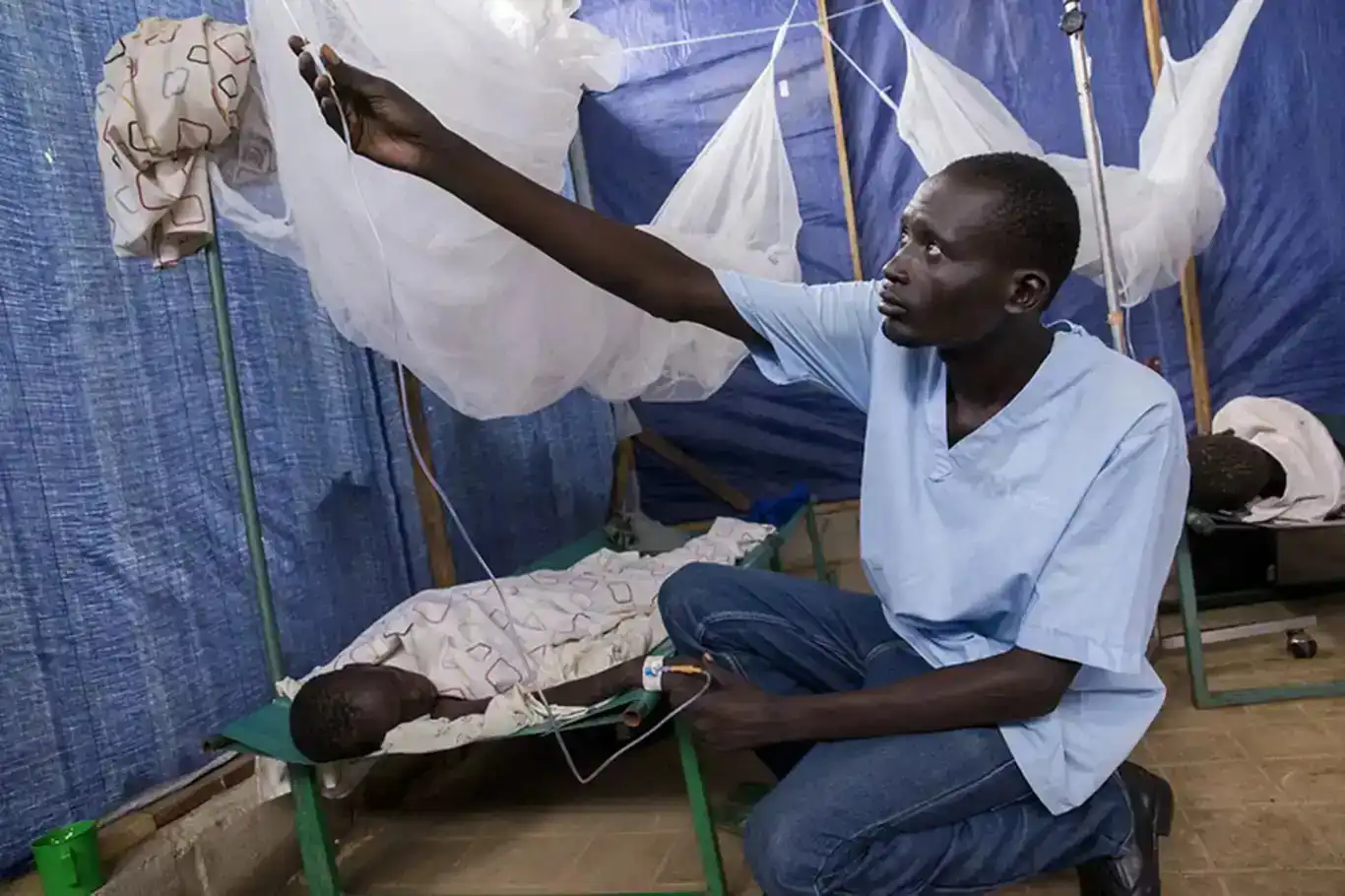Sudan faces escalating humanitarian crisis as cholera spreads nationwide


The World Health Organization (WHO) has issued a stark warning about the deepening humanitarian catastrophe in Sudan, describing it as one of the worst crises in the world.
The country is grappling with an alarming surge in cholera, measles, and malaria, compounded by mass displacement, food insecurity, and the collapse of essential services.
In a statement shared on its official X (formerly Twitter) account, the WHO confirmed that cholera has now spread to all 18 states across Sudan. Since August 2024, more than 96,000 cases have been reported, with a sharp increase in recent months, particularly in densely populated displacement camps and areas with severely damaged water infrastructure.
“Sudan is facing one of the world’s worst humanitarian crises, marked by disease, hunger, displacement, and despair,” the WHO wrote. “Measles and malaria are also continuing to spread.”
Cholera Outbreak Strains Crumbling Healthcare System
The ongoing cholera epidemic, triggered by the consumption of contaminated water and poor sanitation conditions, is a direct result of the country’s collapsed infrastructure. According to humanitarian workers on the ground, hundreds of health facilities have been destroyed or rendered inoperable since the start of the conflict, leaving large swathes of the population without access to clean water, vaccines, or treatment.
Humanitarian agencies report that access to medical aid and supplies remains severely restricted, particularly in the besieged areas such as El Fasher in North Darfur. Health workers have also sounded the alarm about cholera-related deaths, particularly among children and the elderly, due to the lack of oral rehydration salts and IV fluids.
According to Médecins Sans Frontières (Doctors Without Borders), the case fatality rate for cholera in some regions of Sudan has surpassed 3%, far above the emergency threshold of 1%, indicating widespread untreated or late-diagnosed cases.
Conflict Driving Mass Displacement and Disease
Since April 15, 2023, Sudan has been mired in an intense and destructive conflict between the Sudanese Armed Forces (SAF) and the paramilitary Rapid Support Forces (RSF). What began as a power struggle in the capital, Khartoum, has since morphed into a nationwide war, decimating infrastructure and social services.
The United Nations has called it the largest displacement crisis in the world, with over 11 million people displaced internally and around 4 million fleeing across borders to neighboring countries such as Chad, South Sudan, and Egypt.
On May 20, 2025, the Sudanese army declared full control over Khartoum, pushing RSF fighters westward. However, the RSF continues to hold large swathes of territory, including four out of the five Darfur states, and has maintained a siege on El Fasher, the capital of North Darfur, for over a year. Intense urban fighting continues there, with civilians caught in the crossfire.
Calls for International Support
Despite the scale of the crisis, humanitarian access remains extremely limited. Aid agencies warn that only a fraction of the international funding appeal for Sudan has been met, hindering efforts to contain disease outbreaks and deliver critical relief.
The WHO and other organizations are calling for urgent international support to expand access to clean water, scale up cholera vaccination campaigns, and rebuild damaged healthcare infrastructure. Without swift and coordinated action, health experts fear Sudan’s escalating epidemics could claim tens of thousands of additional lives. (ILKHA)
LEGAL WARNING: All rights of the published news, photos and videos are reserved by İlke Haber Ajansı Basın Yayın San. Trade A.Ş. Under no circumstances can all or part of the news, photos and videos be used without a written contract or subscription.
A powerful magnitude 7.6 earthquake struck northeastern Japan late Tuesday night, prompting tsunami warnings, mass evacuations and emergency response measures across coastal regions.
Sales of new electric vehicles (EVs) in Russia surged 57 percent year-on-year in November, marking the second consecutive month of growth, according to data released Monday by the automotive analytics agency Autostat.
Four people affiliated with France’s National School of Civil Aviation (ENAC), including one instructor and three students, were killed after a light aircraft crashed in the Pyrenees mountains, French authorities confirmed on Monday.
A Dutch court has frozen the assets of South Stream Transport, the operator of the TurkStream natural gas pipeline, as part of legal efforts by Ukrainian companies to recover losses linked to Russia’s 2014 annexation of Crimea, Russian newspaper Vedomosti reported on Monday.